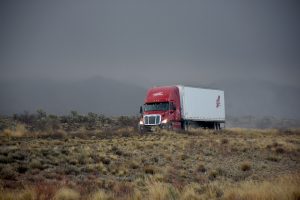Moving nation-wide can be a challenging and risky endeavor for just about anyone. Even the most experienced of us that have several completed relocations in the backpack still find difficulties while moving. Whether it comes down to finding the right long distance movers for the job or preparing the budget. The fact remains that it takes a lot of effort, time and investments – to secure a stress-free move. And one of the many things to consider is the transit insurance for moving interstate that you have to take out before the actual relocation. Why is that? Well, let’s look into this together, shall we?
A guide to insurance when moving cross-country
Most people that wish to move interstate and save money in the process choose to do so with self-pack storage containers. However, if you choose this cheap option for moving nation-wide to West Virginia, you might have insurance-related questions. What is the best way to protect your property from harm?

Protect your property with transit insurance for moving interstate.
Different types of interstate moving companies offer different types of services. Hence, the coverage they offer to clients also differs. So, sometimes you might not be able to count on the same level of transit insurance for moving interstate. This is a matter you should take the time to explore before you go ahead and hire a mover. One thing is certain. All moving companies with an established reputation will offer will offer transit insurance as well as public liability insurance.
What is transit insurance for moving interstate and why is it important?
As the name itself states – transit insurance serves to cover your household items during the period of transition. So, it’s important to remember that this insurance comes into play only after your belongings have been loaded on the truck and leave your property. After all, this is what the ‘transit’ stands for – during transit only. What does this type of insurance cover when it comes to transit?

Accidents happen – and once they do, you better be insured.
As we all know, accidents happen all the time, especially in transit. And if you are looking for cross-country moving companies Wyoming that will help you relocate, you need to take the high level of road accidents in the state into your consideration. Transit insurance for moving interstate serves to protect you from unexpected situations, such as:
- Natural disasters – flood, storms, hurricanes, fire etc.
- Road accidents – derailment, collisions, jack-knifing etc.
- Theft & car-jacking
However, if your property tends to suffer any damage not noted by the causes above, tough luck. This is why you need to make sure to cover all your bases. If you’ve done a poor job of packing and loading the shipping container or truck you rented, you are the one liable for any damages. This is why you should always look into packing guidelines from professionals. It’s that or you can go ahead and hire professionals to take care of the packing and loading process for you. It might cost more, but it offers you a peace of mind at the very least.
It always pays to be protected with insurance
It’s quite a sight to behold – for you to see your entire life packed in one truck. You can’t but worry and wonder what you would do if anything were to happen to those belongings. And this is the best motivation for you to get transit insurance for moving interstate. It’s a matter of having that ‘just in case’ plan.
It’s the same principle that you would apply when it comes to healthcare coverage. You might not be sick or at risk at the moment – but none of us really know what the future holds. The best you can do is get the insurance and have one less matter to worry about and stress over. So, now that we’ve concluded that you need insurance, which type should you opt for? Federal regulations obligate all moving companies to provide their clients with two types of interstate moving insurance:
#1: Basic coverage
- This is what is commonly defined as “released value protection”. Or in more understandable terms, this type of insurance covers all your belongings (no matter the value) at 60 cents per pound. And this basic transit coverage for interstate moving is usually included in the moving estimate. Now, most people will wonder why a company will look to charge them a lot more than 60 cents per pound to relocate the items. And this is also a normal thing to question. After all, your property is certainly more valuable than 60 cents per pound.
- And it is for this reason that there is such a deal as “full-value protection”, where you make the call. By this, we mean that you decide how valuable all your belongings put together are. You than pay exactly 1 percent of that grant total. The thing to bear in mind here is that it is usually the moving company that decides how to compensate you for any damaged items – replacement or compensation.
#2: Expanded mover coverage
There are times when basic coverage will not be sufficient. You should know that there is the option for you to upgrade coverage. In fact, there are several solution that moving companies can offer in such cases. So, in truth, no moving company can sell actual insurance – they simply offer coverage for your belongings. In other words, when you pay for “insurance”, it’s the amount your hold the movers liable for in case of damages, lost or destroyed items.

Do the calculations before you choose any type of transit insurance.
To conclude our story
Should you take out transit insurance for moving interstate? Most definitely. However, bear in mind that you also have to consider other expenses and fit them all inside your overall moving budget. Based on that figure and limit, you will be able to determine how much you can invest in insurance and other aspects of your move. The lesson to take from all this – better safe than sorry.




